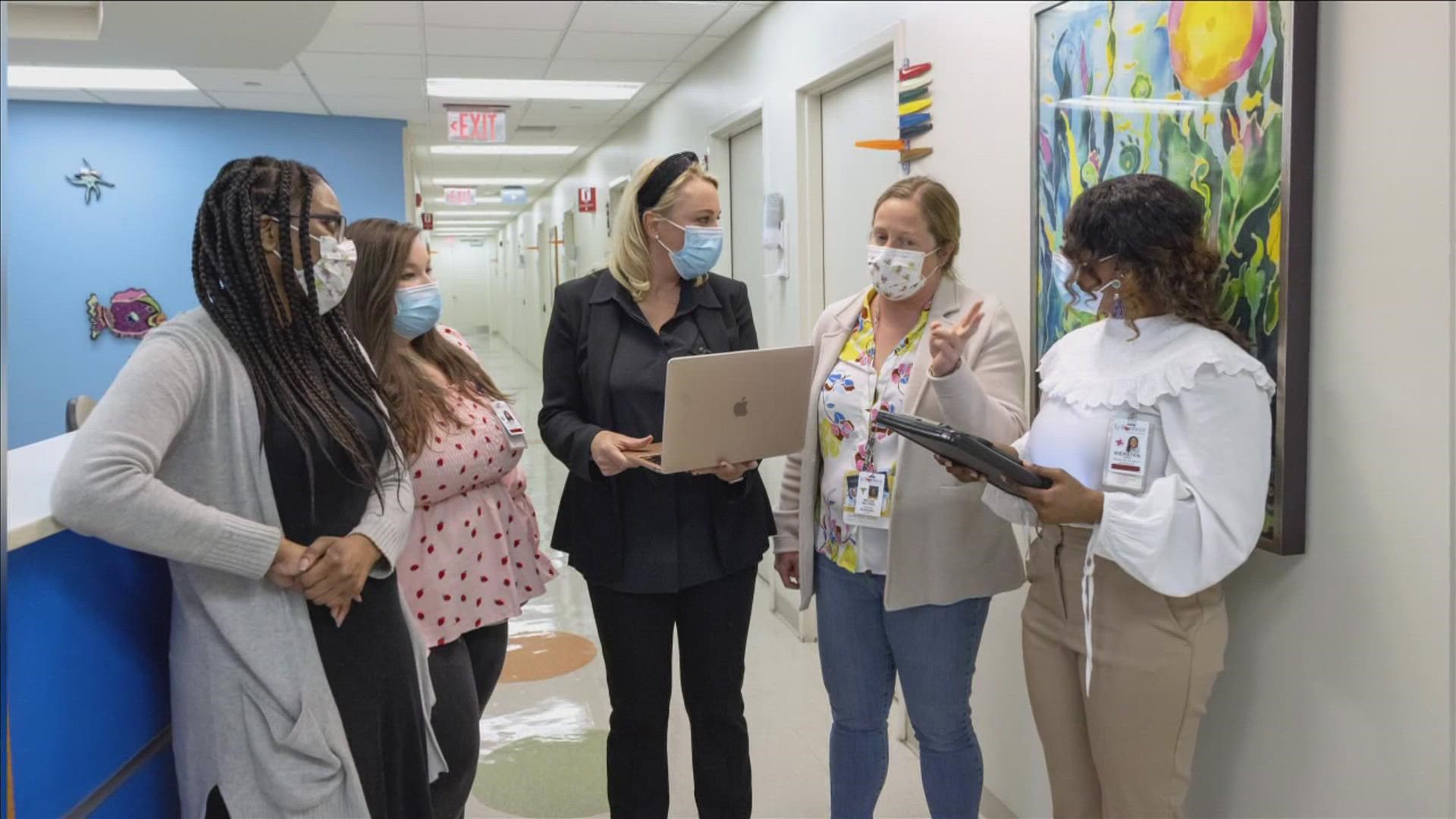MEMPHIS, Tenn. — In 2020, a partnership between Le Bonheur Children’s Hospital and the University of Memphis lead to the creation "The Brain Center," providing mental health services for youth who have experienced recent trauma.
Now, Brain Center Founding Director Dr. Eraina Schauss said that time is of the essence when it comes to youth "because of the precipitous rise that we've experienced here in Memphis in terms of juvenile and pediatric gun violence victims, coupled with the COVID pandemic."
“There was just such a critical need to provide integrated trauma mental health counseling services in the hospital,” Schauss said. “It's not very common for hospitals to offer those services immediately upon entry to receive care.”
Le Bonheur Children’s Hospital and the University of Memphis are starting with how to cope when children experience trauma. Through The Brain Center, Dr. Schauss and her team are making mental health part of bedside manner.
Often times, mental effects from trauma can be immediate—especially for children.
“Everybody talks about the fight or flight response, you'd kind of see this hyper vigilance where kids really startle very quickly because their body just can't cope with any kind of distress," Schauss said. "They can be fearful to return home, back to their environment. Sometimes they have nightmares, they have flashbacks."
The Brain Center counsels youth while they are physically recovering. It is completely free and unlimited. Patients are able to use the resource even after they are discharged from the hospital.
“If we can provide that early intervention now, then that will alleviate some mental health symptoms or distress that you may experience in the future,” Schauss said.
Since officially kicking off in 2021, The Brain Center has provided more than 2,500 sessions to more than 1,800 children and their families.
“One of the things that we do is we talk about what's called acute stress disorder, " Schauss said. "Acute stress disorder is kind of like the pre diagnosis to PTSD, so we teach children and their families like what to look out for.”
The program hopes to prevent any harmful or bad coping strategies.
“The earlier you can get help, the better, and I think that works—always—with mental health," Schauss said. "The sooner you identify the symptoms, the sooner you can work on fixing the problem.”

